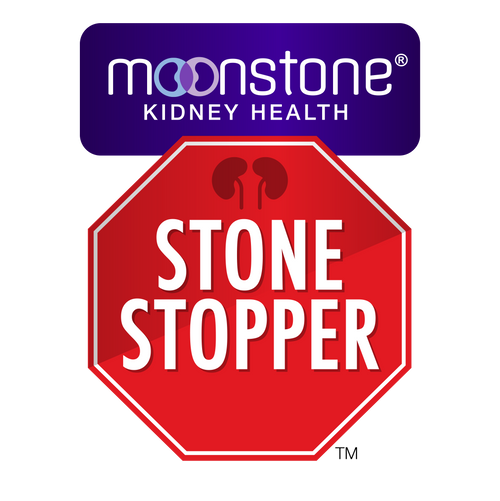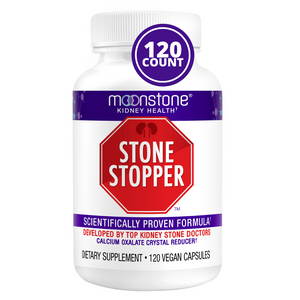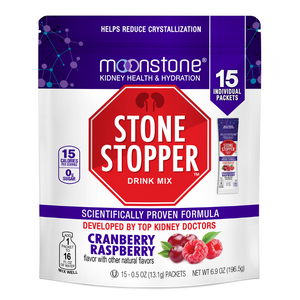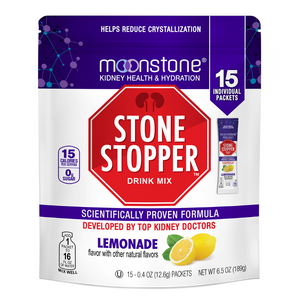Nephrologist and internationally recognized kidney stone expert David Goldfarb MD can relate to the pain associated with kidney stones because he’s had three of his own. Now he is committed to helping people support kidney health by changing a few habits and incorporating new solutions. He knows that common misconceptions are preventing people from having optimal urinary chemistry, which is important to kidney health.
Are you taking care of your kidneys?
- Myth: Drinking lemonade is a good way to support kidney health. “If flavoring your water with lemon encourages you to drink more of it, then lemon is fine. But lemon juice, as well as orange juice and grapefruit juice, are relatively low in pH and don’t support healthy kidney chemistry. For that, you need a beverage with higher citrate levels because citrate helps prevent calcium from binding to oxalate.”
- Myth: There’s nothing harmful about limiting fluid intake when you won’t be near a bathroom. “It’s common for people in some professions, including athletes, bus drivers, doctors and nurses, to do this. But it puts them at risk for what we call occupational kidney stones. Everyone understands what water is, but not necessarily that it dilutes urine and limits the ability of bad salts to crystallize. Stones come from not voiding enough, which is caused by not drinking enough water or other fluids.”
- Myth: It’s easy to get enough citrate through diet alone. “A diet high in fruits and vegetables will have more citrate. But the body uses citrate to help neutralize the effects of animal proteins, so you may need to supplement your diet with more citrate. One of the easiest and most efficient ways to increase your citrate intake is Moonstone Kidney Health Beverage. Developed by some of the nation’s top kidney health physicians, it contains enough citrate to immediately improve your urinary pH. It’s easily available as drink powders that can be mixed with carbonated or noncarbonated water. Just one serving a day should do it for most people. It comes in several refreshing flavors, including lemon lime and cranberry raspberry.”
- Myth: Once you’ve had a kidney stone, you should avoid drinking tea. “While tea contains some oxalates, there is no clear evidence that tea drinkers have more stones. If this is a concern, though, just limit tea intake to one or two cups a day.”
- Myth: Sweetened beverages won’t harm kidneys. “There is an association between fructose and the development of kidney stones. Studies show that people who drink sweetened drinks, especially colas, tend to have more calcium in their urine. Fructose can also contribute to weight gain, which puts people at greater risk for stones.”
- Myth: Kidney stones are more likely to form in the winter when we’re more sedentary. “Urologists, nephrologists and emergency room physicians see more cases of kidney stones in the summertime. Due to higher temperatures, it’s more common for people not to keep up with their fluid intake and become dehydrated.”
Goldfarb points out that once you have a kidney stone, there is a 50% chance you will develop more stones within five to seven years. “Increasing citrate intake is now one of the easiest ways to support normal kidney function.”
David Goldfarb, MD is affiliated with Moonstone Nutrition.






1 comment
I wish you had the capsules in stock. When will they be available? Thanks.